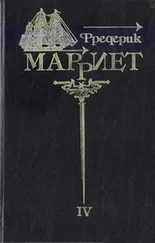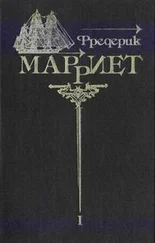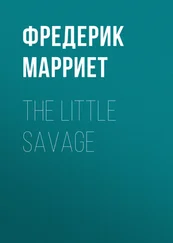Фредерик Марриет - Jacob Faithful
Здесь есть возможность читать онлайн «Фредерик Марриет - Jacob Faithful» — ознакомительный отрывок электронной книги совершенно бесплатно, а после прочтения отрывка купить полную версию. В некоторых случаях можно слушать аудио, скачать через торрент в формате fb2 и присутствует краткое содержание. Жанр: prose_military, literature_19, foreign_antique, foreign_prose, на английском языке. Описание произведения, (предисловие) а так же отзывы посетителей доступны на портале библиотеки ЛибКат.
- Название:Jacob Faithful
- Автор:
- Жанр:
- Год:неизвестен
- ISBN:нет данных
- Рейтинг книги:4 / 5. Голосов: 1
-
Избранное:Добавить в избранное
- Отзывы:
-
Ваша оценка:
- 80
- 1
- 2
- 3
- 4
- 5
Jacob Faithful: краткое содержание, описание и аннотация
Предлагаем к чтению аннотацию, описание, краткое содержание или предисловие (зависит от того, что написал сам автор книги «Jacob Faithful»). Если вы не нашли необходимую информацию о книге — напишите в комментариях, мы постараемся отыскать её.
Jacob Faithful — читать онлайн ознакомительный отрывок
Ниже представлен текст книги, разбитый по страницам. Система сохранения места последней прочитанной страницы, позволяет с удобством читать онлайн бесплатно книгу «Jacob Faithful», без необходимости каждый раз заново искать на чём Вы остановились. Поставьте закладку, и сможете в любой момент перейти на страницу, на которой закончили чтение.
Интервал:
Закладка:
“Loose, loose every sail to the breeze,
The course of the vessel improve,
I’ve done with the toil of the seas,
Ye sailors, I’m bound to my love.
“Tom, you beggar, is the bundle ready for your mother? We must drop the skiff, Jacob, at Battersea reach, and send the clothes on shore for the old woman to wash, or there’ll be no clean shirts for Sunday. Shove in your shirts, Jacob; the old woman won’t mind that. She used to wash for the mess. Clap on, both of you, and get another pull at those haulyards. That’ll do, my bantams.
“Hoist, hoist, every sail to the breeze,
Come, shipmates, and join in the song,
Let’s drink while the barge cuts the seas,
To the gale that may drive her along.
“Tom, where’s my pot of tea? Come, my boy, we must pipe to breakfast. Jacob, there’s a rope towing overboard. Now, Tom, hand me my tea, and I’ll steer her with one hand, drink with the other, and as for the legs, the less we say about them the better.
“No glory I covet, no riches I want,
Ambition is nothing to me.
But one thing I beg of kind Heaven to grant—”
Tom’s treble chimed in, handing him the pot—
“For breakfast a good cup of tea .
“Silence, you sea-cook! how dare you shove in your penny whistle! How’s tide, Tom?”
“Three quarters ebb.”
“No, it a’n’t, you thief; how is it Jacob?”
“About half, I think.”
“And you’re right.”
“What water have we down here on the side?”
“You must give the point a wide berth,” replied I; “the shoals runs out.”
“Thanky, boy, so I thought, but wasn’t sure:” and then old Tom burst out in a beautiful air:
“Trust not too much your own opinion,
When your vessel’s under weigh,
Let good advice still bear dominion;
That’s a compass will not stray.”
“Old Tom, is that you?” hallooed a man from another barge.
“Yes; what’s left of me, my hearty.”
“You’ll not fetch the bridges this tide—there’s a strong breeze right up the reaches below.”
“Never mind, we’ll do all we can.
“If unassailed by squall or shower,
Wafted by the gentle gales
Let’s not lose the favouring hour,
While success attends our sails.”
“Bravo, old Tom! why don’t the boys get the lines out, for all the fishes are listening for you,” cried the man, as the barges were parted by the wind and tide.
“I did once belong to a small craft called the Anon,” observed old Tom, “and they say as how the story was, that that chap could make the fish follow him just when he pleased. I know that when we were in the North Sea the shoals of seals would follow the ship if you whistled; but these brutes have ears—now fish hav’n’t got none.
“Oh well do I remember that cold dreary land,
here the northern light,
In the winter’s night,
Shone bright on its snowy strand.
“Jacob, have you finished your breakfast? Here, take the helm, while I and Tom put the craft a little into apple-pie order.”
Old Tom then stumped forward, followed by his son and the Newfoundland dog, who appeared to consider himself as one of the most useful personages on board. After coiling down the ropes, and sweeping the decks, they went into the cabin to make their little arrangements.
“A good lock that, Tom,” cried the father, turning the key of the cupboard. (I recollected it, and that its snapping so loud was the occasion of my being tossed overboard.) Old Tom continued: “I say, Tom, you won’t be able to open that cupboard, so I’ll put the sugar and the grog into it, you scamp. It goes too fast when you’re purser’s steward.
“For grog is our larboard and starboard,
Our main-mast, our mizzen, our log,
On shore, or at sea, or when harbour’d,
The mariner’s compass is grog.”
“But it arn’t a compass to steer steady by, father,” replied Tom.
“Then don’t you have nothing to do with it, Tom.”
“I only takes a little, father, because you mayn’t take too much.”
“Thanky for nothing; when do I ever take too much, you scamp?”
“Not too much for a man standing on his own pins, but too much for a man on two broomsticks.”
“Stop your jaw, Mr Tom, or I’ll unscrew one of the broomsticks, and lay it over your shoulders.”
“Before it’s out of the socket, I’ll give you leg-bail . What will you do then, father?”
“Catch you when I can, Tom, as the spider takes the fly.”
“What’s the good o’ that, when you can’t bear malice for ten minutes?”
“Very true, Tom? then thank your stars that you have two good legs, and that your poor father has none.”
“I very often do thank my stars, and that’s the truth of it; but what’s the use of being angry about a drop of rum, or a handful of sugar?”
“Because you takes more than your allowance.”
“Well, do you take less, then all will be right.”
“And why should I take less, pray?”
“Because you’re only half a man; you haven’t any legs to provide for, as I have.”
“Now, I tell you, Tom, that’s the very reason why I should have more to comfort my old body for the loss of them.”
“When you lost your legs you lost your ballast, father, and, therefore, you mustn’t carry too much sail, or you’ll topple overboard some dark night. If I drink the grog, it’s all for your good, you see.”
“You’re a dutiful son in that way, at all events; and a sweet child, as far as sugar goes; but Jacob is to sleep in the cabin with me, and you’ll shake your blanket forward.”
“Now that I consider quite unnatural; why part father and son?”
“It’s not that exactly, it’s only parting son and the grog bottle.”
“That’s just as cruel; why part two such good friends?”
“’Cause, Tom, he’s too strong for you, and floors you sometimes.”
“Well, but I forgives him; it’s all done in good humour.”
“Tom, you’re a wag; but you wag your tongue to no purpose. Liquor ain’t good for a boy like you, and it grows upon you.”
“Well, don’t I grow too? we grow together.”
“You’ll grow faster without it.”
“I’ve no wish to be a tall man cut short, like you.”
“If I hadn’t been a tall man, my breath would have been cut short for ever; the ball which took my legs would have cut you right in half.”
“And the ball that would take your head off, would whistle over mine; so there we are equal again.”
“And there’s the grog fast,” replied old Tom, turning the key, and putting it into his pocket. “That’s a stopper over all; so now we’ll go on deck.”
I have narrated this conversation, as it will give the reader a better idea of Tom, and his way of treating his father. Tom was fond of his father, and although mischievous, and too fond of drinking when he could obtain liquor, was not disobedient or vicious. We had nearly reached Battersea Fields when they returned on deck.
“Do you know, Jacob, how the parish of Battersea came into the possession of those fields?”
“No, I do not.”
“Well, then, I’ll tell you; it was because the Battersea people were more humane and charitable than their neighbours. There was a time when those fields were of no value; now they’re worth a mint of money, they say. The body of a poor devil, who was drowned in the river, was washed on shore on those banks, and none of the parishes would be at the expense of burying it. The Battersea people, though they had least right to be called upon, would not allow the poor fellow’s corpse to be lying on the mud, and they went to the expense. Now, when the fields became of value, the other parishes were ready enough to claim them; but the case was tried, and as it was proved that Battersea had buried the body, the fields were decided to belong to that parish. So they were well paid for their humanity, and they deserved it. Mr Drummond says you know the river well, Jacob.”
Читать дальшеИнтервал:
Закладка:
Похожие книги на «Jacob Faithful»
Представляем Вашему вниманию похожие книги на «Jacob Faithful» списком для выбора. Мы отобрали схожую по названию и смыслу литературу в надежде предоставить читателям больше вариантов отыскать новые, интересные, ещё непрочитанные произведения.
Обсуждение, отзывы о книге «Jacob Faithful» и просто собственные мнения читателей. Оставьте ваши комментарии, напишите, что Вы думаете о произведении, его смысле или главных героях. Укажите что конкретно понравилось, а что нет, и почему Вы так считаете.












